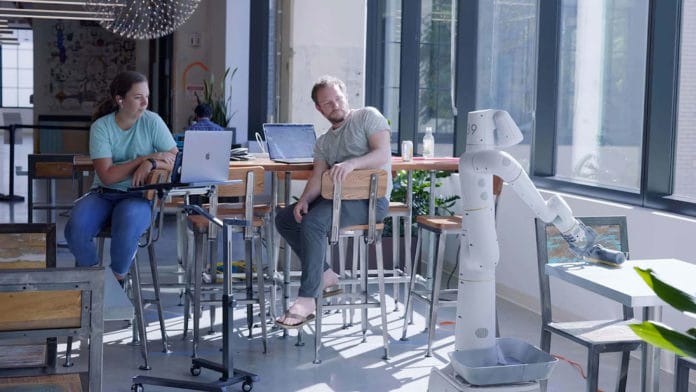While robotics has advanced by leaps and bounds in recent decades, it is still surprising that robots are incapable of performing such simple, everyday tasks as cleaning a restaurant table.
Google’s parent company Alphabet has announced its Everyday Robots Project – the team dedicated to creating a general-purpose learning robot – has now moved some of its prototype machines out of the lab and into Google’s Bay Area campuses to carry out some light custodial tasks.
“We are now operating a fleet of more than 100 robot prototypes that autonomously perform a range of useful tasks around its offices. The same robot that sorts trash can now be equipped with a squeegee to wipe tables and use the same gripper that grasps cups can learn to open doors,” says Hans Peter Brøndmo, Everyday Robot’s Chief Robot Officer.
The design of these robots is basic; these are essentially arms on wheels with a multipurpose gripper on the end of a flexible arm attached to a central tower. The robots are equipped with a mix of different cameras and sensors to take in the world around them. Using a combination of machine learning techniques like reinforcement learning, collaborative learning, and learning from demonstration, the robots have steadily gained a better understanding of the world around them and become more skilled at doing everyday tasks.
A single robot learns how to perform a complex task such as opening doors with a 90% success rate with less than a day of real-world learning. The team can build on the algorithms and learnings from the door opening and apply them to a new task: straightening up chairs in the company’s cafes. “This progress gives us hope that our moonshot for building general-purpose learning robots might just be possible.”
The Everyday Robots team imagines the future where their robots work alongside humans, helping us in a myriad of ways, like enabling older people to maintain their independence for longer.
“We believe that robots have the potential to have a profoundly positive impact on society and can play a role in enabling us to live healthier and more sustainable lives. While our imagined world is still a long way off, results from our recent experiments suggest that we may just be on track to one day make this future a reality,” the company wrote in the blog post.
